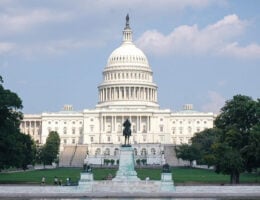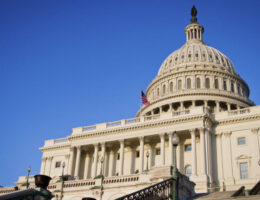On 13 February 2025, the US Department of Justice Antitrust Division and the Federal Bureau of Investigation announced the launch of a new online portal to help track and arrest international fugitives believed to be evading prosecution for anticompetitive crimes by remaining abroad. Specifically, the portal features information on individuals who have been publicly charged with competition crimes but have not yet answered the charges in federal court. The portal currently provides identifying information for more than 70 international fugitives charged in connection with DOJ’s long-standing investigations into price fixing and bid rigging conspiracies related to automotive parts, fuel supply contracts to the US Department of Defense, air cargo, and international shipping, among others.
On 12 November 2024, the US Department of Justice Antitrust Division updated its Evaluation of Corporate Compliance Programs in Criminal Antitrust Investigations (ECCP). The additions include guidance such as using “managers at all levels” to “set the tone from the middle” by “demonstrating to employees the importance of compliance,” establishing policies that account for the use of “ephemeral messaging or non-company methods of communication,” applying “data analytics tools in . . . compliance and monitoring,” and involving compliance personnel in “the deployment of AI and other technologies to assess the risks they may pose.” Additionally, the ECCP now addresses its application to civil investigations.
The U.S. Supreme Court has denied appeals from both parties from the December 1, 2023, decision of the U.S. Court of Appeals for the Fourth Circuit reversing DOJ’s criminal conviction of a former executive of an aluminum products manufacturer for failure to state a per se antitrust offense under the Sherman Act. The Fourth Circuit held that the trial court erred in applying the per se rule without considering that the alleged scheme took place within the context of a “dual distribution” relationship among competing bidders, who also maintained a supplier relationship. The Fourth Circuit denied DOJ’s petition for an en banc rehearing.
On 23 September 2024, the US Department of Justice Criminal Division issued an updated version of its Evaluation of Corporate Compliance Programs document. DOJ uses the Evaluation Guidance to assess the adequacy of compliance programs in place at companies subject to its criminal enforcement activities. DOJ has updated the Evaluation Guidance periodically since its release in 2017 to align with evolving DOJ policies, priorities, and compliance best practices. This latest iteration reflects current DOJ investigation and enforcement priorities and the increasing relevance of artificial intelligence and other emerging technologies to companies, their compliance programs, and DOJ’s enforcement efforts. DOJ also updated the Evaluation Guidance to encourage companies to: 1) incorporate a lessons-learned approach; 2) focus on compliance due diligence and integration in acquisitions; and 3) properly incentivize internal reporting of wrongdoing.
On 1 August 2024, the US Department of Justice Criminal Division launched a Corporate Whistleblower Awards Pilot Program (“Program”). The announcement was previewed in remarks by DOJ officials in March, and follows the rollout of the DOJ’s Individual Voluntary Self-Disclosure Program in April 2024 and similar programs implemented in the Southern District of New York (SDNY) and the Northern District of California (NDCA), in February and March 2024. Under the Program certain individuals who provide original and truthful information about corporate misconduct may be eligible to receive an award if the information results in successful criminal prosecution and criminal or civil asset forfeiture.
On April 10, 2024, the Department of Justice Antitrust Division announced that it had secured a guilty plea from a fuel truck company owner for conspiracy to monopolize trade in violation of Section 2 of the Sherman Act. This policy shift has expanded the scope of the DOJ’s criminal antitrust enforcement agenda. Accordingly, companies should ensure that their employees are properly complying with antitrust regulations and continue to monitor as this revived area of antitrust law develops.
On 7 March 2024 at the American Bar Association’s 39th National Institute on White Collar Crime, Deputy Attorney General Lisa Monaco announced several new initiatives the Department of Justice is implementing to address concerns around the use of AI in federal criminal activity along with potential corporate compliance failures that might facilitate the misuse of AI.
On 6 March 2024, California Assistant Attorney General Paula Blizzard announced at the American Bar Association’s annual National Institute on White Collar Crime the state’s intentions to reinvigorate criminal enforcement of the Cartwright Act, California’s primary antitrust statute. California has not criminally prosecuted violations of the Cartwright Act in 25 years. Blizzard’s announcement comes shortly after California enacted legislation to codify restrictions against no-poach and non-compete clauses. All-in-all, state officials appear poised to follow in the Biden administration’s footsteps and increase antitrust enforcement. Companies should be on notice of certain states like California that are taking steps to strengthen antitrust enforcement and alleged agreements to fix prices, divide markets, and rig bids could soon lead to criminal penalties under either state or federal statutes.
On 1 December 2023, the US Court of Appeals for the Fourth Circuit reversed a Sherman Act conviction of a former executive of an aluminum products manufacturer for failure to state a per se antitrust offense. In February 2022, the former executive was found guilty of six counts: conspiracy to rig bids, conspiracy to commit mail or wire fraud, three counts of mail fraud, and one count of wire fraud. The court affirmed the mail and wire fraud convictions, but reversed the Sherman Act conviction of conspiracy to rig bids. The Fourth Circuit held that the trial court erred in applying the per se rule without considering the fact that the alleged scheme took place within the context of a “dual distribution” relationship among competing bidders, who also maintained a supplier relationship.
On 1 December 2023, the US Court of Appeals for the Fourth Circuit reversed a Sherman Act conviction of a former executive of an aluminum products manufacturer for failure to state a per se antitrust offense. While DOJ is considering en banc review of this opinion, if upheld the decision could have lasting implications for how the DOJ proceeds with indictments involving parties that engage in dual distribution. We will continue to monitor for future developments in this case as it moves forward.









